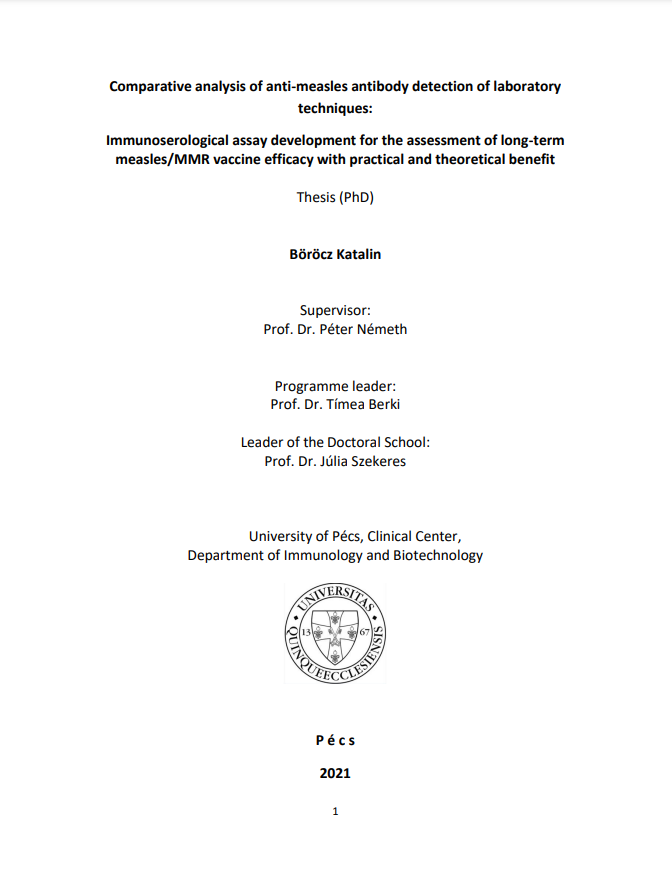Comparative analysis of anti-measles antibody detection of laboratory techniques: Immunoserological assay development for the assessment of long-term measles/MMR vaccine efficacy with practical and theoretical benefit
Abstract
Infectious immunity has an outstanding importance today. Vaccination
remains one of the safest and most effective interventions available in public
health for the primary prevention of infectious diseases, resulting in both direct
and indirect (herd immunity) immunity in individuals vaccinated (1–3). Even
though in Europe a safe and effective two-dose measles/MMR vaccination
schedule has been made available since the 1960s, the maintenance of high
vaccine coverage is still difficult (4–7). Despite the fact that in Hungary the
measles (nowadays MMR) vaccine is mandatory since 1969, and consequently
the vaccine coverage is estimated at 99% (WHO), vaccination-group specific
immunization gaps may exist (8–15). Suboptimal vaccine effectiveness in certain
vaccination -or age- groups has a negative impact also on overall vaccination
coverage. The small-scale ‘measles outbreak of Makó and Szeged’ (2017)
confirmed that certain measles vaccines - applied during the early phases of the
Hungarian vaccination history –, failed to elicit the desired immunological
response. The resulting immunization gap(s) raise the concern of potential
further outbreaks (10,15). Screening for immunity and effectiveness of
vaccination against infectious diseases has increasing importance in the design of
preventive public health strategies, especially today, when prompt testing is also
emphasized by the ongoing COVID-19 pandemic. Measles has been already an
issue worldwide, yet being aggravated by disrupted immunization protocols due
to the COVID-19 burden (4–6,16). Immunity gaps arising from suspended
immunization activities are an ominous precursor to a measles resurgence (4).
Measles is extremely communicable with the basic reproduction number (R0)
estimated at 12-18 (compared to 2.9-3.4 of COVID-19, for example). Accordingly,
we have developed a robust, time-saving, cost-effective and standardized ‘triple’
immunoserological assay for simultaneous detection of anti-measles, -mumps,
3
and -rubella IgG antibodies in human sera. Since our test has been optimized for
the screening of suboptimal antibody titers, it is able to operate reliably in the
low measurement range, therefore can be readily used to delineate susceptible
individuals and gaps of immunological protection.

